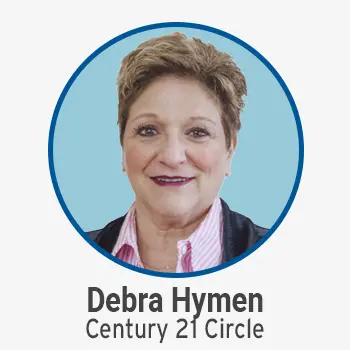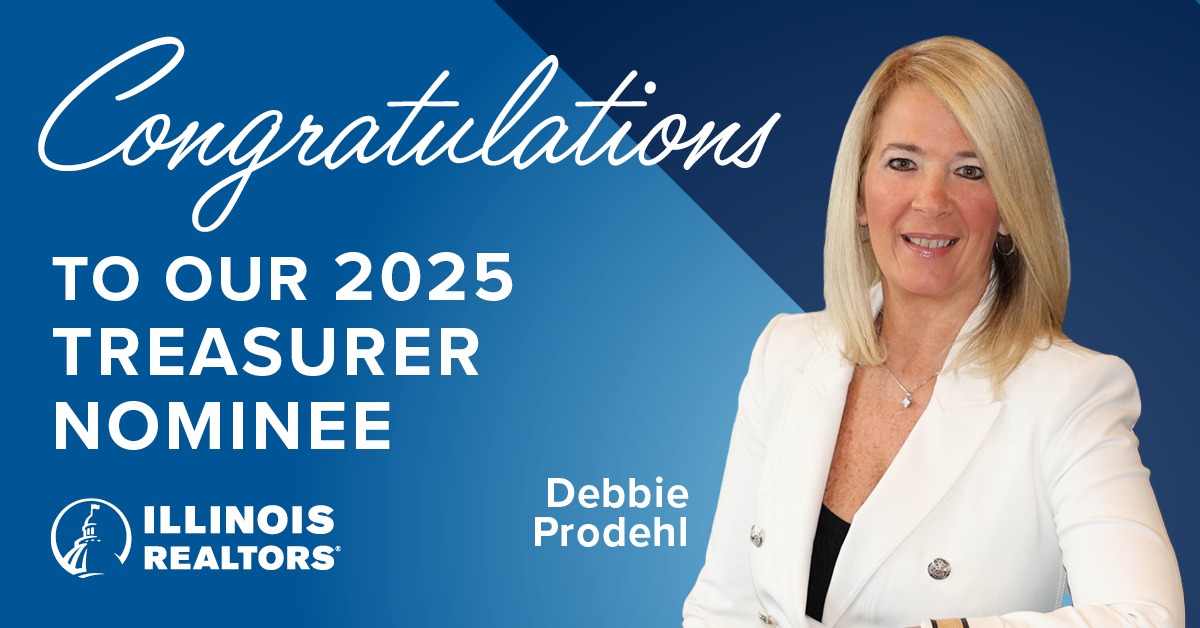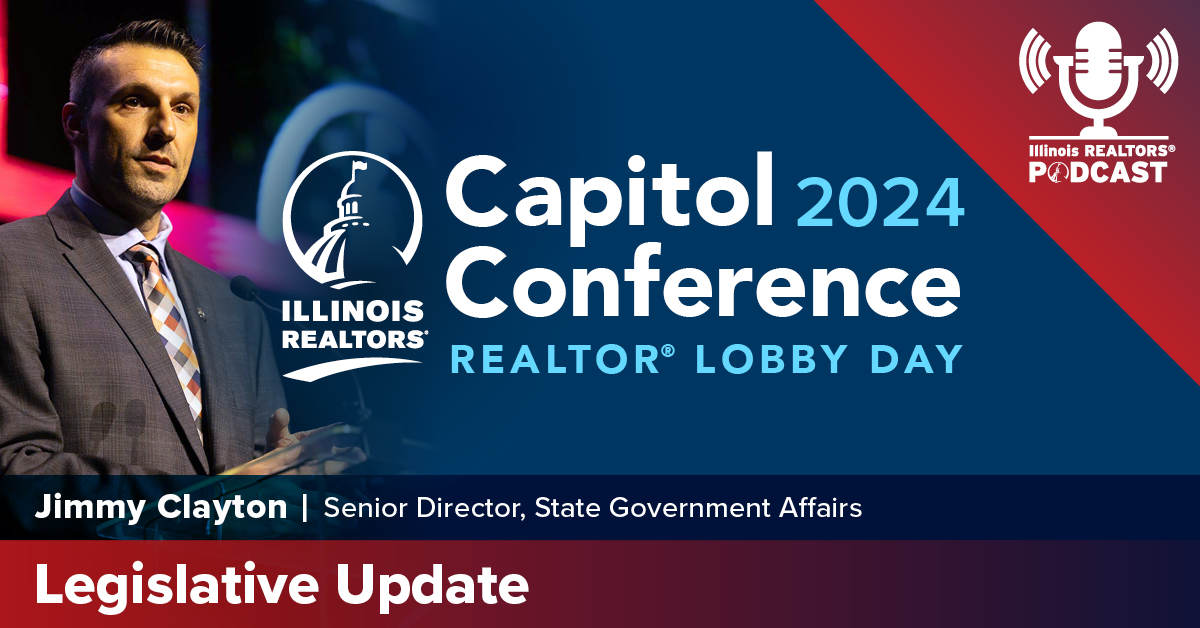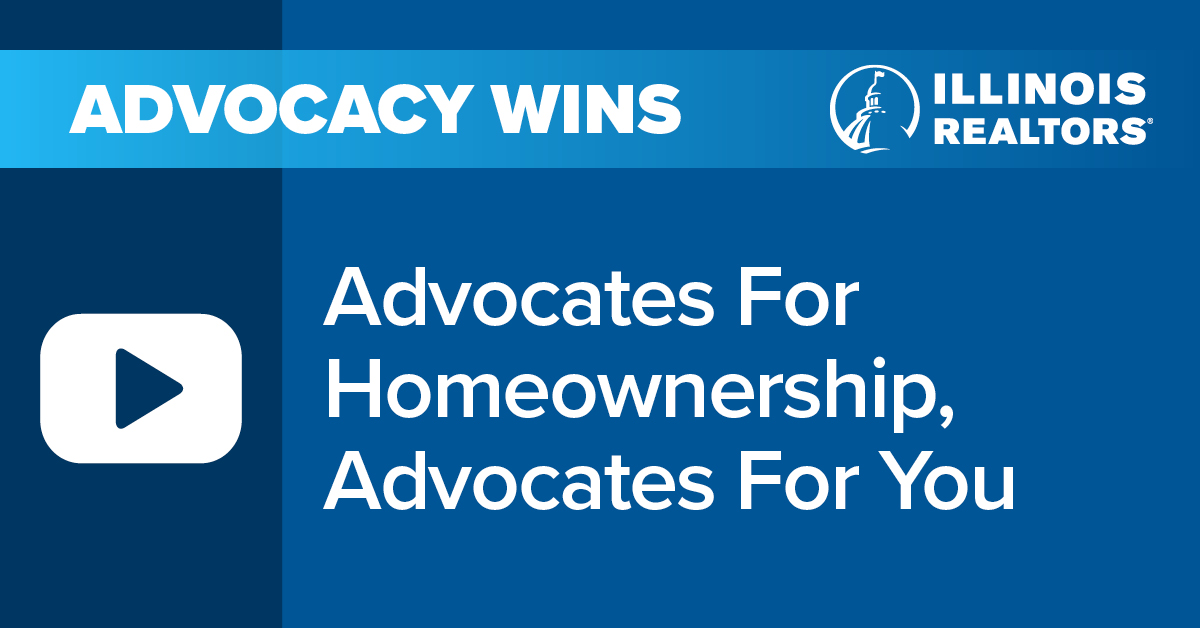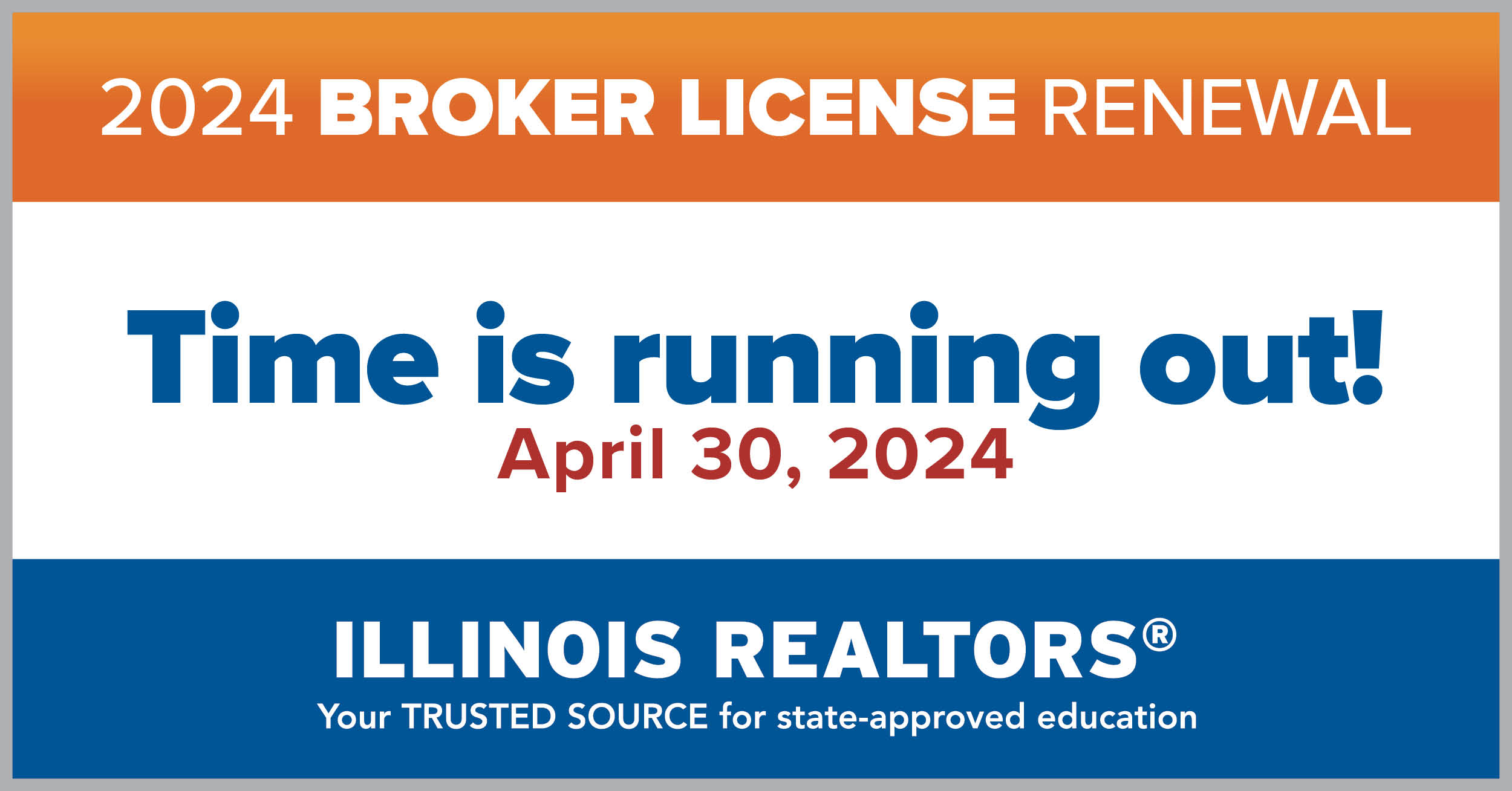In the latest Revitalize, Opportunity, Influence (ROI) video, NAR General Counsel Katie Johnson and Illinois REALTORS® General Counsel Betsy Urbance talk about ways for association and brokerage offices to reopen and pivot to a “new normal.”
“You want to create an environment of trust and confidence in the physical space so your staff and your visitors will feel welcome and safe interacting there,” says Johnson. “There are three key elements in your reopening plan: preparation . . . follow-through . . . and communication.”
Brokerage offices and association offices should assemble a team of people to study local, state, federal laws and/or guidance to understand how these apply to their businesses. The team should consult guidelines from the Center for Disease Control (CDC), the Illinois Public Health Department and use resources suggested by NAR such as the COVID-19 Workplace Re-entry Checklist.
Also available on Illinois REALTORS® podcast channel:
Employers should develop a plan for reopening the office and communicate it clearly to all staff, Johnson says. Make sure employees and visitors understand how they can safely enter the building and what steps everyone should follow to abide by social distancing guidelines and to properly use face masks, hand sanitizer and disinfectant wipes. For example, signs, video and phone messages can be used to distribute information and explain procedures.
Since the state is encouraging individuals to continue to work from home, if staff can effectively work from home, support that says Johnson. Employers should be as patient, flexible and accommodating as possible.
Consumer interaction and brokerage business practices
Because consumers could have a wide range of comfort levels with COVID-19, those same qualities will be important, too, says Johnson. As a result, virtual showings will continue to have a place in the new normal.
It is permissible to ask consumers if they have been exposed to COVID-19, even to ask them to fill out COVID-related questionnaires, as long as every consumer is asked to do so, and the action depending on the answers is consistently applied.
“The Golden Rule is at the heart of our Code of Ethics,” says Johnson. “It should be our guiding light.”
Full transcript:
Betsy Urbance: Welcome to Illinois REALTORS® ROI podcast series. I’m Betsy Urbance, General Counsel for Illinois REALTORS®. We recently visited with Katie Johnson, General Counsel and Chief Member Experience Officer for the National Association of REALTORS®. Katie joined me to converse about how we might safely and cautiously reopen real estate offices. These challenges present opportunities to pivot towards the goal of moving our business forward, carefully and successfully through the different phases of our return to normalcy. So thanks for joining us today, Katie.
Katie Johnson: Thank you, Betsy. It’s great to be here.
Betsy Urbance: The first subcategory that we’re going to talk about a little bit here with you Katie, is the physical workspace and personnel and what some of the guidance and policies should be. So the first question is, as Illinois moved into the phase three recovery section of the Governor’s restore Illinois plan, there has been an allowance for certain nonessential businesses to reopen. Having said that, is that required?
Katie Johnson: Good question. No, not required. No businesses is required to reopen right now, but as you said, there’s allowance for it and there’s opportunity for it. I believe the recovery plan actually specifically states and encourages telework for all workers who are feasible. So first I’d just recommend that if you are able to work from home, consider continuing to do so. But the city of Chicago labeled their phase three as Cautiously Reopen. And I think that’s a good term, because it reminds us to be cautious about our plans in reopening. And when we speak about it at NAR and we speak with members and associations about developing their plans, we give them this guide. We say, “Be patient, be flexible and be accommodating.”
Betsy Urbance: Really good responses to that particular question. Now we’re going to drill down a little bit further, and these questions are more geared to what our members in our local associations might be tuned into. So we’ll talk specifically in terms of businesses being a brokerage or an association. So the second question, and I think some of these questions apply really to both, because they’re physical office spaces with people in them. So the second question is if a brokerage or association has decided to reopen, what are some key points for their physical workspace?
Katie Johnson: So when you’re creating your plan, which I think we’re going to talk about more today, to reopen, I think you need a guiding light. And the guiding light is that you want to create an environment of trust and confidence in the physical space so that your staff and your visitors will feel welcome and safe interacting there. So how do you facilitate an environment of trust and confidence while there’s lots of behaviors that are essential towards building trust? But here there’s three key elements in your reopening plan. That’s preparation. Prepare, prepare, prepare. Follow through. Walk the walk, do what you say you’re going to do in those plans. And communicate. Ask questions, actively listen, and clearly communicate your plans to the interested parties.
Betsy Urbance: Okay. Really good. Thank you for that. So related, question number three, what are some other important notes to make sure employers, both brokerage companies and associations are prepared to return to the physical space and that the policies and the practices are in place.
Katie Johnson: So in step one, prepare. In preparing, I think it’s a good idea to gather a team. Assemble a team or work group of people who are really stakeholders, are invested in creating that safe and trusted physical space. And what’s your team going to do? Your team is going to study the laws, make sure they know the federal, state, local laws, how they apply to your office space, what they require, as well as the CDC guidelines for safety measures and your Illinois State Health Department guidelines.
Katie Johnson: Once you understand the law and the structures, check out our checklist at nar.realtor/coronavirus. We created a checklist called the “Workplace Re-entry Checklist,” and it will be a good tool for your team to use when you’re walking through all the potential issues and all the potential planning, because it’s going to prompt you to think about the issues about your physical space, including what your cleaning protocols need to be, what they will be, where the hand sanitizer will be located at ingress and egress, what the capacity of your space can be, what the capacity of the common areas can be, how you can implement physical distancing in those common areas, as well as in the workspaces. What do you need to do to adjust the workplaces, whether it be cubicles or offices to ensure that that the most amount of people interacting there are going to be safe and have a reduced risk of contracting COVID-19?
Katie Johnson: But in addition to the physical safety, health cleaning sanitizing precautions you’re going to have to take, think about the employee policies. How are the employees impacted in this new normal? What does their travel look like? Are there going to be restrictions on travel? What is their remote work policy look like? Remember, be flexible, be accommodating. In many cases, the law requires it, whether it be the state reopening guidelines or the Federal Family’s First Recovery Act that is going to require you to accommodate families with children or people impacted by this illness. So create a policy that you can turn to when faced with those issues. And also a policy regarding how you’ll react to someone who has a known illness in your office.
Katie Johnson: We call it a preparedness plan. We do have a sample preparedness plan on our website, nar.realtor/coronavirus. And it’s an example of how you might evacuate the floor where the infected individual worked, sent quarantine, those individuals on that floor for 14 days, and other safety and cleaning and sanitizing and disinfecting precautions that you’re going to take after learning about that. And so once your team creates the plan, addresses all those issues and more, you’re just going to want to make sure that you lead by example and you follow through with that plan. That’s going to include training of the employees, signs, posting signs at ingress, egress, in the common areas, to clearly communicate to staff and visitors how you are addressing their safety and what precautions you’re taking to create this confidence in this environment.
Betsy Urbance: Right. Thank you. And I think earlier on in your advice in this particular topic that we’re talking about, you mentioned occupancy. And occupancy standards do vary a little bit from there’s the federal stuff, and then there’s the guidance that we have from the DCEO in Illinois, the Department of Commerce and Economic Opportunity, which in an office building, I think is currently 50% of the occupants or the capacity is allowed.
Betsy Urbance: And then as, as mentioned earlier … Well, as we talked about earlier, I guess I should say, the Chicago guidelines for the commercial buildings is 25%. So that is stricter. So we want to remind our folks to, as you did state earlier, check federal state and drill all the way down to local. Because it certainly could be stricter, especially in situations where there’s higher incidents of population. It just stands to reason that in Chicago, we might be a little stricter than downstate where we’re located here South of 80.
Katie Johnson: Yeah, that’s a great point that we get … That’s a great point that we get too is that what happens when the laws or the guidance do conflict? And as you just said, it’s important to follow the stricter guidance, to adhere to the stricter guidance because, unfortunately, like real estate, the virus impact is local and it really needs to … It affects different localities differently.
Betsy Urbance: Help us understand the employer’s role, the obligations about preparation and training. We’ve talked in general a little bit, training on new procedures, the special employee issues that may arise, and really truly the importance of the good communication channels and how those things can work in the employer, whether it’s brokerage or associations benefit.
Katie Johnson: Sure. Again, I believe it all goes back to fostering this environment of trust and confidence. And when doing that, you have to communicate clearly, transparently. You have to ask questions and you have to solicit feedback and follow through. And so here, you asked about obligations. You are obligated to have a plan and communicate that plan to your employees. All the guidance I’ve seen says, “Train your employees on what the new safety protocols will be.” Will they be required to use the hand sanitizer at ingress and egress? What will their requirements be with regards to congregating in common areas? Make sure your employees, your staff, and your visitors are well aware of the parameters of your plan. So that’s going to be … The onus is going to be on you as the employer to communicate that. Whether it be in signage, in video discussions, in video training, virtual meetings, recorded messaging, or all of that. Be sure that everyone interacting is aware of the plan, aware of the rules and can easily adhere to them, because that’s ultimately, what’s going to foster this confidence and trust is that everyone feels safe interacting.
Katie Johnson: And then I’ll just add too is that this is not a one and done exercise. We are at the beginning of cautiously reopening. We will learn from this experience what else needs to happen differently. Maybe more, maybe less. That your plan will be tweaked. So make sure that team that you’ve assembled to create and implement the plan is also meeting regularly to test whether it’s still a good plan to follow, or if tweaks need to be made.
Betsy Urbance: We’ve just talked generally a little bit about the workplace. Now let’s talk about some special considerations for our real estate brokers that are out in the field.
Katie Johnson: First, major kudos to all REALTORS® who have turned this challenging time into real opportunity to enhance the way that they serve clients and customers. We have seen real innovation in virtual showings, digital marketing, customer relationship management. These past few months, people are doing things new, different, and better than they’ve ever done before. So, I think it’s a testament to the resiliency of REALTORS®, and I think it bodes well for our value proposition for many years to come.
Katie Johnson: So, I want to say keep going. Just keep going. This is not a … this cautiously reopening is not a back to business as usual, by any means. Take a minute to pause and think about how you’ve improved your business these past few months and what lessons learned there you can bring with you to the future, and with regards to actually starting the business and getting back to in person interactions, I do want to turn your attention to another resource we have on our website at nar.realtor. It’s called “Showing Guidance During Reopening,” and it’s culminated from the feedback and the questions we’ve received from a number of brokers across the country as to what they believe are best practices for cultivating the safe space and steps that they take before, during and after in person showings.
Betsy Urbance: Right. Thank you for that. And just as a follow-up to that really good guidance, even though things are legally allowed, what are some of the best practices to think about going forward in our post COVID, or really truly our with COVID world?
Katie Johnson: Good point. This is cautiously reopening, as I said, doesn’t mean going back to business as usual. I think the best practices going forward is to continue doing what’s worked well. And in many instances, virtual showings, virtual client communications has worked very well and we all strongly encourage REALTORS® to continue with that effort. I think that when assessing the marketing plan with your clients, you need to take it very individually. Every client is going to have specific needs and desires. And every client is going to be at a different point in the spectrum of comfort level and trust, and where they are on that spectrum will depend on where you are in your marketing effort.
Katie Johnson: So I think that dealing with clients and customers in this new normal, which will be a life with COVID-19 for the foreseeable future, I would use the same guidance that we give for reopening your office. And that’s be patient, be flexible, be accommodating. And as long as you’re having these open communications and asking questions with your clients, you’ll understand their needs and their comfort levels in terms of marketing their properties.
Betsy Urbance: Right. Thank you. Now let’s really switch gears a little bit, but a very, very, and always important topic is one of our last, but certainly not least. And that’s with regard to fair housing and some of the questions that come up in this situation. So recognizing that much has been said and written on the topic of fair housing as it relates to consistent and non-discriminatory treatment of persons with different ethnicities, race, national origin, those with disabilities, what are your thoughts with regard to treatment of those who have or had COVID-19, and will they be considered a protected class?
Katie Johnson: Great question. And a difficult question. The fair housing act certainly applies always. And the question is, is COVID-19 going to be considered a disability, such a disability protected under the fair housing act? And the answer is that it’s too early to tell. It’s a novel question, but it’s certainly possible. There are signs and what we know about the COVID-19, it very well could be considered a disability at some future point. So the best rule of thumb and guidance here is to act as if it is covered under the act.
Betsy Urbance: Right. So question number two that’s kind of a follow-up to this. Is it permissible to ask persons if they’ve been diagnosed or they’ve been exposed to COVID-19?
Katie Johnson: Yes, it is permissible to do so. And in fact, because of COVID-19 is widespread and highly contagious and potentially very dangerous, it’s a good idea to ask. So you might be confused right now because I just said it’s likely a disability protected under the act, and we know that we are prohibited from inquiring about individual’s disability under the act. So why am I saying, “Yes it’s okay,” and, “Yes, it’s a good idea”?
Katie Johnson: Well, here we’re taking our cues from a number of federal agencies and governments, who are asking the questions and have relaxed the prohibitions in light of the severity of COVID-19. For example, the EEOC and the CDC both have issued guidance to employers and homeless shelters permitting them to symptom related questions, permitting them to ask whether the visitors have, or the employees have COVID-19. And that is deemed to be necessary to protect the health and safety of others around them. Again, I’m protecting the health and safety of others around them is always permissible under the Fair Housing Act.
Betsy Urbance: Question number three. Is it permissible to ask someone to complete a COVID-19 questionnaire prior to engaging them as a client? And am I obligated to assist someone who mentions that they have had, or been exposed to COVID-19?
Katie Johnson: Yes. You may ask any individual to self-disclose information about their COVID-19 status, and you can do that either verbally or in writing. In general, you are obligated to provide a reasonable accommodation for individuals with disabilities. So when dealing with someone who has COVID-19, it’s important to first assess whether a reasonable accommodation exists so that you can mitigate the threat that that may cause to you or others. For example, to the extent it’s possible to assist that individual was showing a home virtually, or by other non in person means, you can consider doing so as a reasonable accommodation. But ultimately if a reasonable accommodation does not exist then and showing the house or in person interaction with that individual would pose a threat to your health and safety or the health and safety of others, you are not obligated to do that.
Katie Johnson: The key here is to treat everyone the same. Create a policy or a plan to … if you’re going to ask health questionnaires or health questions at all, ask them of every single person. Have a policy that says you are going to ask every single person that you interact with, or client or customer you interact with the same questions. And here’s how you’re going to evaluate the responses so that you are treating everyone equally, regardless of who they are, but just based on the responses that they provide you.
Betsy Urbance: Right. And then the treatment would be consistently the same too. If they say no, then same response. Right? So finally, that leads us to just the catch-all provision. Is there anything that we should discuss related to this important moment in time where we attempt to phase back in to a new normal of work and life, really?
Katie Johnson: I think we can reiterate a couple of the points we’ve made about being patient, being flexible, be accommodating. Understand all that you can about the environment that COVID-19 presents about the laws and the regulations around it. Ultimately, REALTORS® are resilient. They’ve proven it these past three months. They’ve proven it for the past many, many decades, if not 100 or more years. So they should be proud of how they’ve risen to the challenge and innovated in these times. And again, I just say, keep going. As Illinois REALTORS® puts it, revitalize opportunity influence, leverage this moment and what you’ve accomplished to catapult your business into the future. And then I think it’s also just a helpful reminder that the golden rule is at the heart of the REALTORS® code of ethics.
Katie Johnson: It’s been really hard. 2020 has been a very hard year for many people. And if we can all just remember the golden rule and abide by golden rule, I think that should be our guiding light now on this journey towards our new normal.
Betsy Urbance: All right. That was awesome. Thank you very much, Katie, for joining us today. And I think you’ve given us just lots of great guidance, good pointers. I love the bulleted three things to remember. Those things are really helpful and we should just post them all over our offices. So, we can’t thank you enough for joining us, and have an awesome day.
Katie Johnson: Great. Thank you very much. I’m honored to be here.
Betsy Urbance: We’re very grateful to Katie for spending her time with us and helping us to navigate through this time, learning how to meet our challenges and turn those into opportunities on our way to our new normal, whatever that might be.



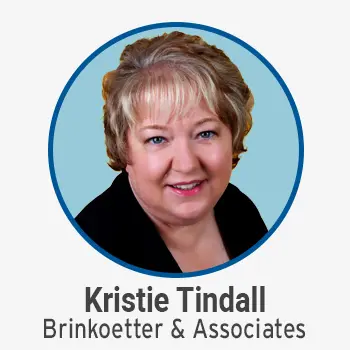
 Create professional development programs that help REALTORS® strengthen their businesses.
Create professional development programs that help REALTORS® strengthen their businesses.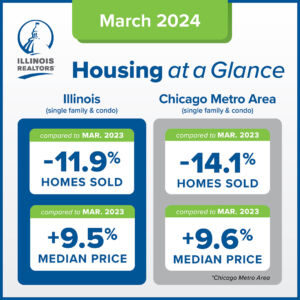
 Protect private property rights and promote the value of REALTORS®.
Protect private property rights and promote the value of REALTORS®.
 Advance ethics enforcement programs that increase REALTOR® professionalism.
Advance ethics enforcement programs that increase REALTOR® professionalism.
 Protect REALTORS® by providing legal guidance and education.
Protect REALTORS® by providing legal guidance and education. Stay current on industry issues with daily news from Illinois REALTORS®, network with other professionals, attend a seminar, and keep up with industry trends through events throughout the year.
Stay current on industry issues with daily news from Illinois REALTORS®, network with other professionals, attend a seminar, and keep up with industry trends through events throughout the year.
